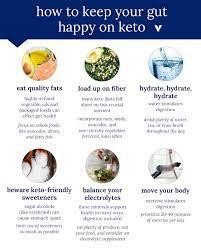Introduction:
The ketogenic diet has gained widespread popularity for its potential health benefits, including weight loss, improved blood sugar control, and enhanced mental clarity. However, like any dietary regimen, it comes with its own set of challenges and side effects. One common issue that some individuals experience when starting the ketogenic diet is diarrhea. In this comprehensive guide, we'll delve into the causes of keto diarrhea, how to manage it effectively, and strategies for minimizing its occurrence.
Understanding Keto Diarrhea:
Diarrhea is characterized by loose, watery stools and increased frequency of bowel movements. When individuals transition to a ketogenic diet, they drastically reduce their carbohydrate intake while increasing their consumption of fats and moderate intake of protein. This shift in macronutrient ratios can affect the digestive system and lead to various gastrointestinal symptoms, including diarrhea.
Causes of Keto Diarrhea:
Rapid Changes in Diet: The sudden reduction in carbohydrates and increase in fats can disrupt the balance of gut bacteria and the digestive process, leading to diarrhea.
Electrolyte Imbalance: The ketogenic diet often causes electrolyte imbalances, particularly low levels of sodium, potassium, and magnesium, which can contribute to diarrhea.
Fat Malabsorption: Some individuals may have difficulty digesting and absorbing high amounts of dietary fat, leading to diarrhea and fatty stools MCT Oil Consumption: Medium-chain triglyceride (MCT) oil, a common supplement used in the ketogenic diet, can cause diarrhea, especially when consumed in large amounts or by those not accustomed to it.
Fiber Intake: Insufficient fiber intake on a ketogenic diet can also contribute to digestive issues, including diarrhea, as fiber helps regulate bowel movements and promotes digestive health.
Managing Keto Diarrhea:
Gradual Transition: Instead of abruptly starting the ketogenic diet, gradually reduce carbohydrate intake over several days to allow your body to adjust more smoothly, potentially reducing the risk of diarrhea.
Monitor Electrolytes: Ensure adequate intake of electrolytes, particularly sodium, potassium, and magnesium, through food sources or supplementation to help maintain balance and alleviate diarrhea.
Increase Fiber Intake: Incorporate low-carb, fiber-rich foods such as leafy greens, avocados, and nuts into your ketogenic meal plan to support digestive health and regulate bowel movements.
Hydration: Drink plenty of water throughout the day to prevent dehydration, especially when experiencing diarrhea, as fluid loss can exacerbate symptoms Limit MCT Oil: If you're experiencing diarrhea after consuming MCT oil, consider reducing the amount consumed or avoiding it altogether until your digestive system adapts.
Probiotics: Incorporating probiotic-rich foods such as yogurt, kefir, sauerkraut, and kimchi into your diet can help restore balance to gut bacteria and alleviate gastrointestinal symptoms.
Digestive Enzymes: Some individuals may benefit from taking digestive enzyme supplements to aid in the breakdown and absorption of fats, reducing the likelihood of diarrhea Monitor Fat Intake: Pay attention to the types and amounts of fats consumed, opting for healthier sources such as avocados, olive oil, nuts, and seeds, which may be better tolerated.
Preventing Keto Diarrhea:
Plan Balanced Meals: Ensure your ketogenic meals are well-balanced, including a variety of fats, proteins, and low-carb vegetables to support overall digestive health. Regularity: Establish a consistent eating schedule to help regulate bowel movements and minimize digestive discomfort.
Listen to Your Body: Pay attention to how your body responds to different foods and adjust your diet accordingly to prevent or minimize diarrhea Seek Professional Guidance: If you continue to experience persistent or severe diarrhea on the ketogenic diet, consult with a healthcare professional or registered dietitian for personalized advice and guidance.
Conclusion:
Keto diarrhea is a common side effect experienced by some individuals when transitioning to the ketogenic diet, but it can often be managed effectively with the right strategies. By understanding the underlying causes and implementing practical tips for prevention and management, you can minimize discomfort and maximize the potential benefits of the ketogenic lifestyle. Remember to prioritize balanced nutrition, hydration, and overall digestive health as you embark on your ketogenic journey.



